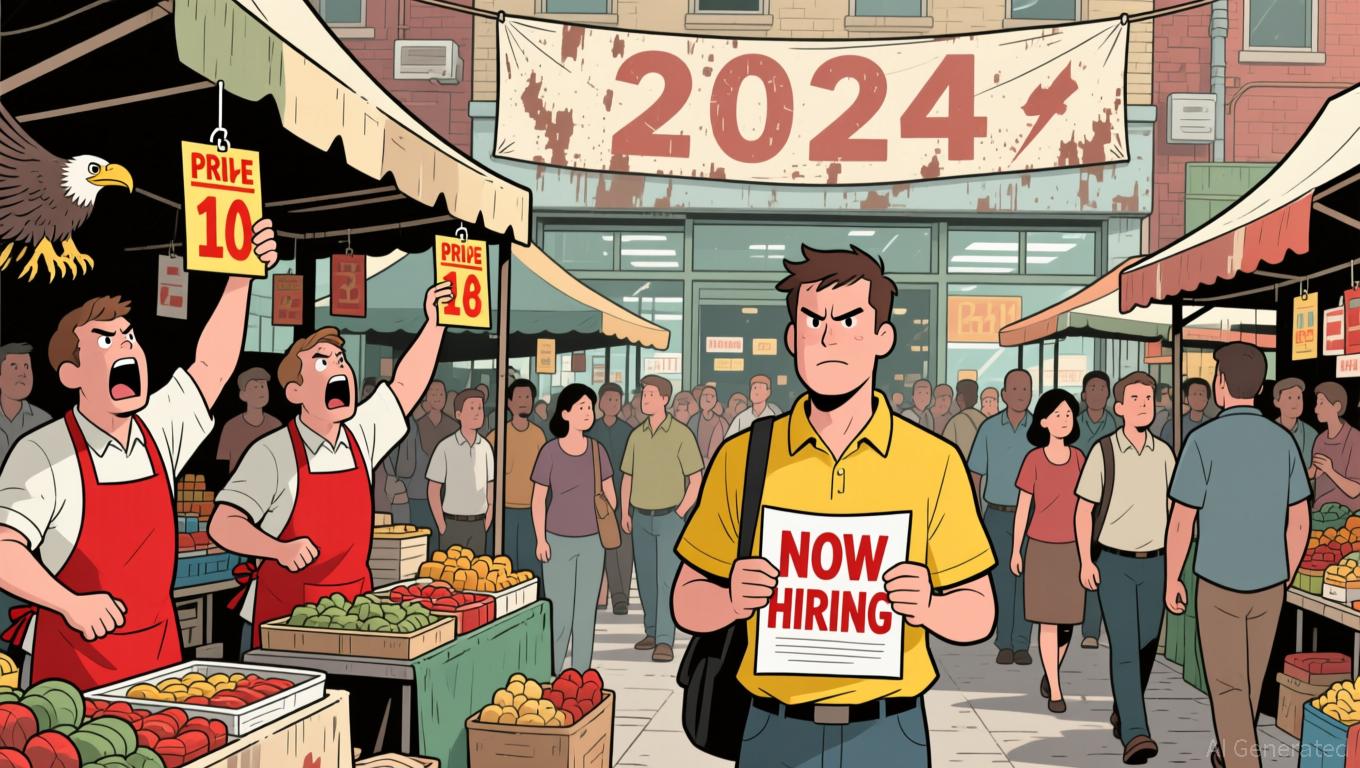Fed Split: Should They Prioritize Fighting Inflation or Supporting Employment?
- Fed policymakers remain divided over prioritizing inflation control or labor-market support, with hawks like Bostic urging rate stability until inflation nears 2%. - Dovish officials argue slowing job growth (29,000 monthly payrolls in late 2024) demands rate cuts to sustain economic momentum despite inflation risks. - Tariff adjustments and delayed economic data complicate decisions, with Treasury's import relief measures facing criticism for potential inflationary rebound. - Looming student loan tax ch
The Federal Reserve has adopted an increasingly cautious stance regarding interest rate reductions, as internal disagreements among policymakers deepen. Officials are divided on whether inflation or a weakening job market represents the more significant risk. Raphael Bostic, President of the Atlanta Fed and known for his hawkish views, reaffirmed his belief that rates should not be lowered until there is "definitive proof" that inflation is moving toward the Fed's 2% goal, according to a report by

Newly announced tariffs have added to the complexity. Treasury Secretary Scott Bessent indicated there would be "significant" tariff reductions on items like coffee, bananas, and other imports to help lower consumer costs, as
Adding to the uncertainty is the prospect of a "tax bomb" for student loan borrowers. Advocacy organizations and Democratic lawmakers have cautioned that debt canceled under income-driven repayment plans will become taxable in 2026, potentially leaving millions with tax bills ranging from $5,800 to $10,000, according to CNBC. Although this issue is separate from monetary policy, it highlights the wider affordability challenges influencing economic discussions.
There is no consensus in the markets about the Fed's upcoming actions. While many investors still anticipate a rate cut in December, the odds have lessened as hawkish voices advocate for maintaining current rates, as Investing.com reported. Should a December cut occur, it would likely flatten the yield curve and weaken the dollar, which could benefit emerging markets and commodities such as gold and copper, according to Investing.com. Conversely, postponing a rate reduction could lead to a sharp increase in Treasury yields and a downturn in stock prices.
Disclaimer: The content of this article solely reflects the author's opinion and does not represent the platform in any capacity. This article is not intended to serve as a reference for making investment decisions.
You may also like
Waymo's autonomous taxis are now operating on highways in Los Angeles, San Francisco, and Phoenix

Lawmakers caution Democratic governors that states are providing drivers’ information to ICE
Apple introduces Digital ID, allowing you to store your passport on your phone for TSA checkpoint use
